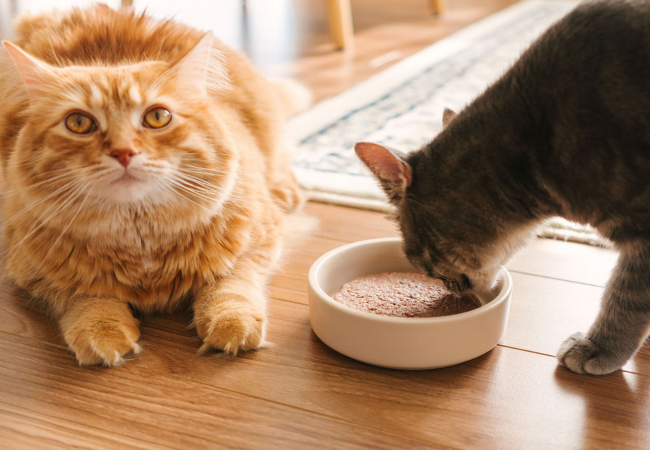Natural Nutrition for Cat Urinary Health 2025: Vet Tips to Prevent Crystals & Infections 🐱✨

In this article
Natural Nutrition for Cat Urinary Health 2025: Vet Tips to Prevent Crystals & Infections 🐱✨
By Dr. Duncan Houston BVSc
Urinary issues are one of the most common reasons cats visit the vet. From struvite crystals and UTIs to full-on urinary blockages, your cat’s diet plays a huge role in prevention and recovery.
I’m Dr. Duncan Houston, veterinarian and founder of Ask A Vet. Here’s how to support your cat’s urinary system with a moisture-rich, natural diet that’s gentle, effective, and easy to manage at home.
🚨 Why Urinary Health Is So Important in Cats
- Cats naturally have low thirst drives
- Kibble-based diets cause chronic dehydration
- Low moisture = concentrated urine → crystals and irritation
🧠 Common Urinary Conditions in Cats
- Struvite crystals: Often diet-related and pH-dependent
- Calcium oxalate crystals: Less pH responsive, can form stones
- Feline lower urinary tract disease (FLUTD): Inflammation, idiopathic cystitis, or blockages
✅ Best Natural Diet Strategies for Urinary Health
1. High Moisture Is Non-Negotiable
- Feed wet, raw, or home-cooked meals only (60–75% moisture)
- Add extra water, broth, or goat milk to meals
2. Balanced Animal Protein
- Stick with digestible proteins like turkey, chicken, lamb, or rabbit
- Avoid high-ash, low-quality meats or excess fish (linked to urinary stress)
3. Urinary pH Control Through Food
- Moderate protein, low magnesium, and moisture-rich diets help keep pH between 6.0–6.5
- Avoid excess carbs and grains—they raise urine pH
4. Use Supplements If Needed
- DL-methionine (acidifier, only under vet advice)
- Cranberry extract (can reduce UTI-causing bacteria adhesion)
- Glucosamine & GAGs (support bladder lining)
📋 Sample Natural Meal for Urinary Health
- 50g cooked turkey
- 10g steamed pumpkin + zucchini
- 1 tsp fish oil + pinch of cranberry powder
- ¼ cup water or broth mixed in
🛑 What to Avoid
- Dry kibble (even urinary prescription ones still lack moisture)
- High magnesium foods (like spinach, soy, or certain grains)
- Feeding fish daily (okay occasionally, not as a staple)
💧 Hydration Boosting Tips
- Use a cat water fountain – many cats prefer running water
- Offer goat milk, bone broth (unsalted), or water-rich treats
- Split meals into 3–4 small feedings with added moisture each time
🔗 Tools from & Ask A Vet
- Ask A Vet – Upload your cat’s food, urine logs, and supplement list for vet feedback on urinary prevention
📋 Summary Excerpt
Most urinary issues in cats can be prevented with moisture-rich, low-stress, and pH-balanced diets. A vet explains how to use real food and hydration to keep your cat’s bladder healthy—naturally.
❓ FAQs
-
Q: Can I fix urinary crystals without prescription food?
A: Often yes—with a vet-approved, moisture-rich natural diet and regular monitoring. -
Q: Is wet food better than raw for urinary health?
A: Both are good—as long as they’re balanced, high-moisture, and low in magnesium. -
Q: What if my cat won’t drink more water?
A: Add water directly to meals and consider broths or goat milk to increase fluid intake.






